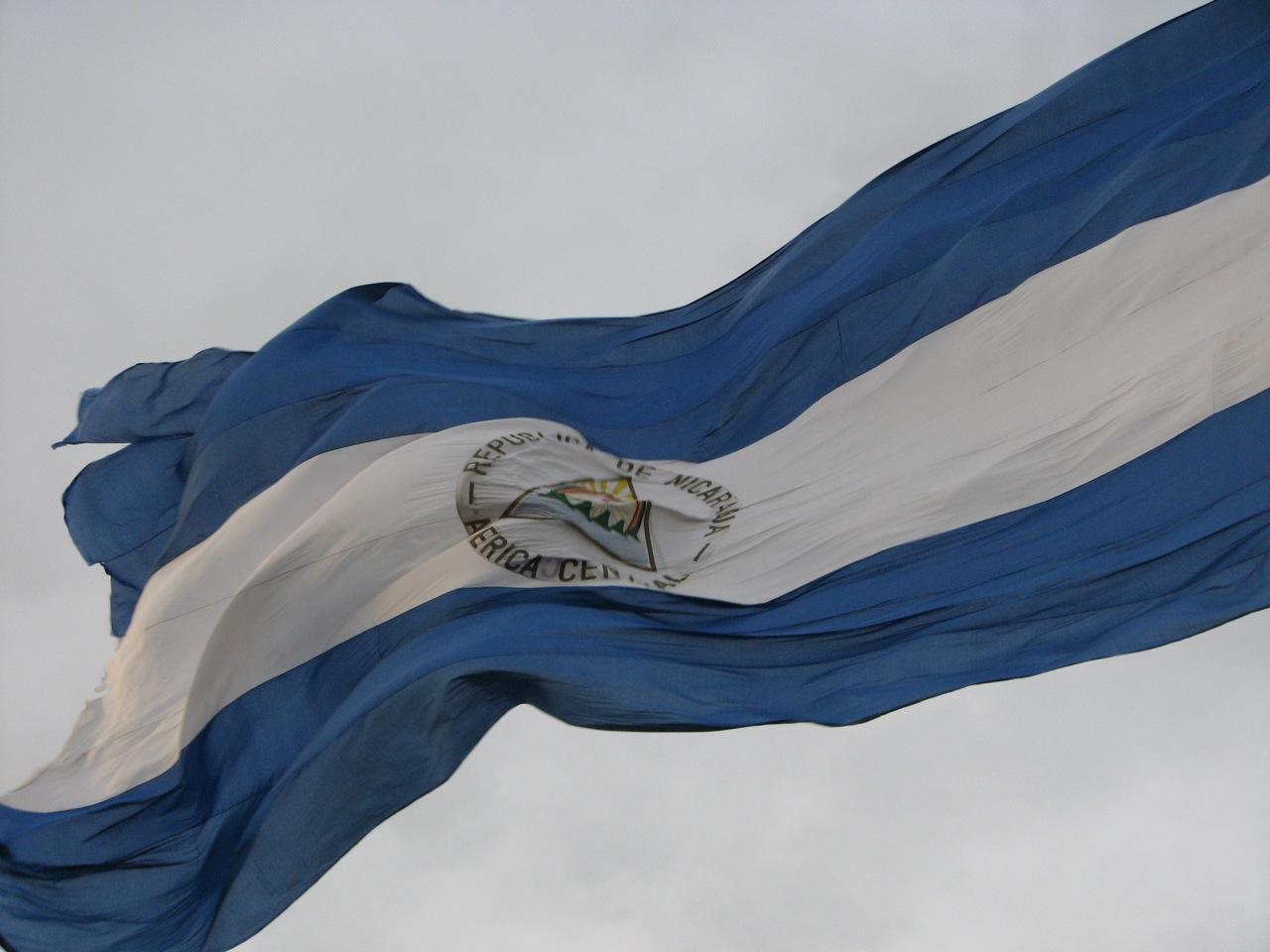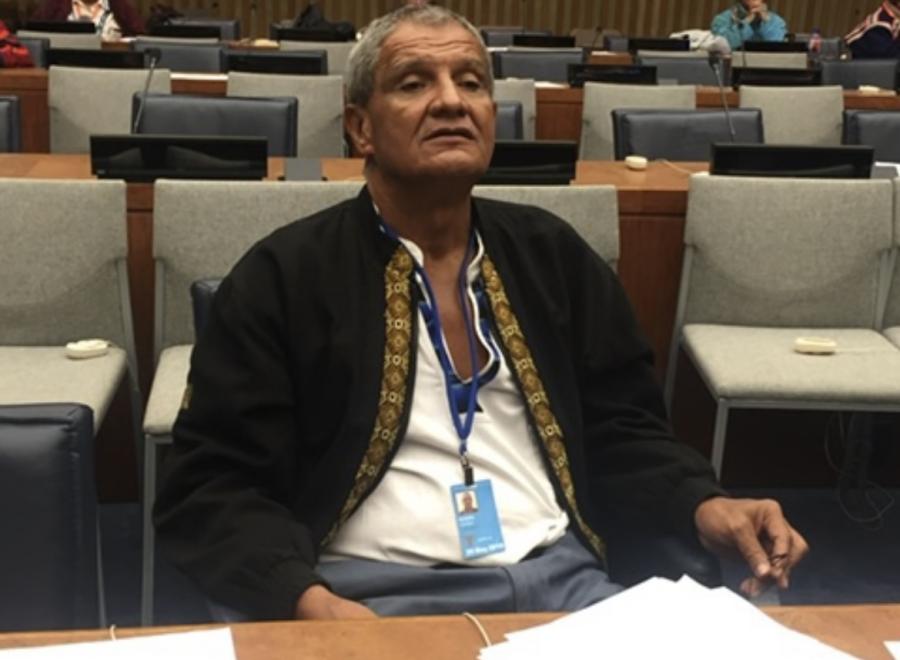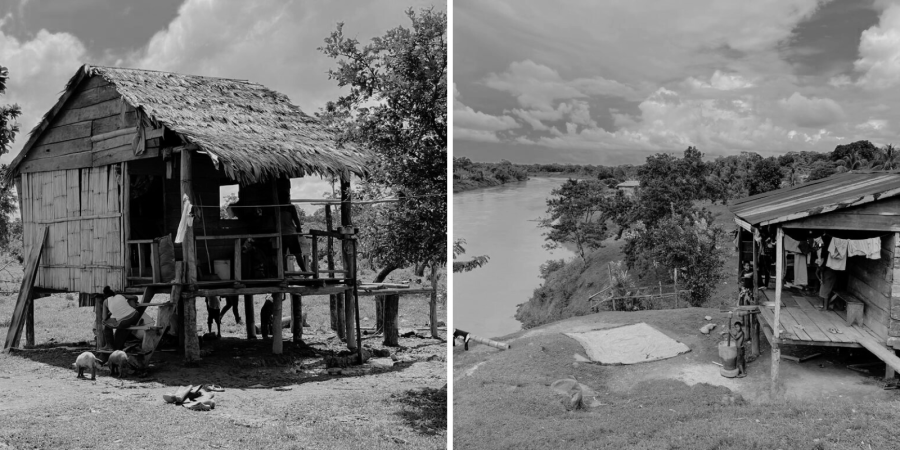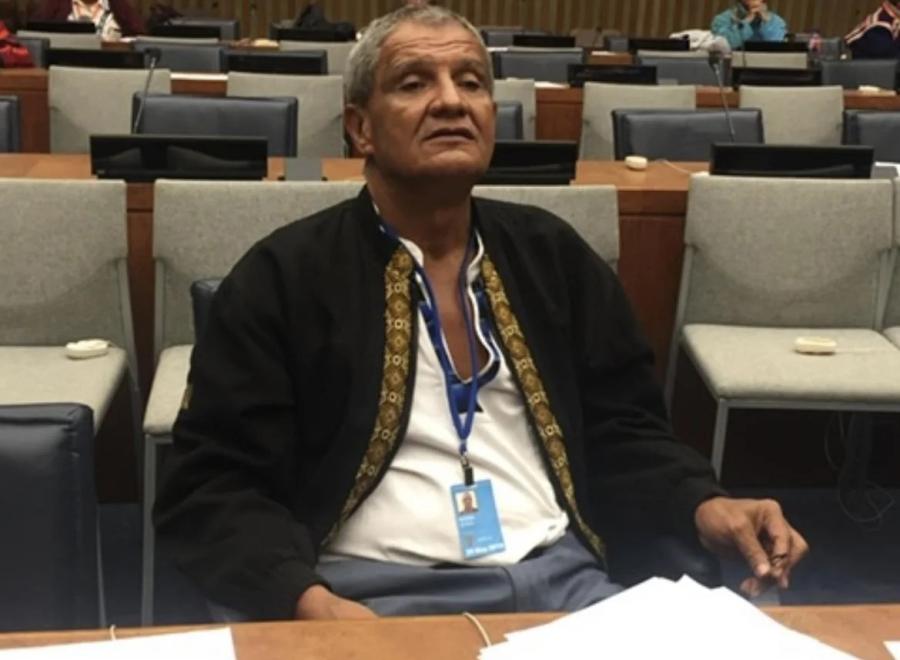
By John McPhaul
Faced with President Donald Trump’s promise of mass deportations, two Miskitu Indigenous leaders are part of a Nicaraguan delegation asking the United States government to let Nicaraguans who are in the U.S. in exile stay with an extension of Temporary Protection Status (TPS) due to the human rights abuses meted out by the regime of Daniel Ortega and Rosario Murrillo.
Temporary Protection Status is a humanitarian immigrant status granted by the U.S. Secretary of Homeland Security to nationals from countries suffering armed conflicts or natural disasters. Nicaraguans currently have TPS, but it expires on July 5, 2025, and the Nicaraguan delegation is anticipating that President Trump will make good on his deportation campaign promise. "We don't want to take anyone's job or make any trouble; we go there to survive," said a Miskitu person visiting his homeland who didn't want to be identified because of the danger of disappearing. He was speaking from somewhere inside Moskitia. “We're asking the U.S. for a place to stay in exile until the political climate changes, and then we can return to our homeland," he said.
Another of the delegates who did not want to be identified said that both Miskitu leaders would be carrying letters of introduction from the Miskiti Council of Elders. A Miskitu leader speaking from exile said the two Miskitu leaders and the other Nicaraguan delegates are in touch with the Trump State Department seeking a meeting to tell them of Nicaragua's and the Miskitu's plight and request the TPS. He is afraid that Miskitus will be among those rounded up and deported with no questions asked. He said that Ortega has taken the citizenship from the exiles deemed "traitors of the homeland" and so they have neither nationalities nor homes to go to. "When they got back to Nicaragua they would go straight to jail," said the exiled.
"The [Trump Administration] must consider our people to give them TPS. We always appreciate the Americans. Our hero Ronald Reagan gave us weapons to fight the Sandinistas... and we won the civil war and that's why the Sandinistas are after us today. "They are really taking revenge in a very horrible way. Only a narco government acts this way," said the Miskitu in Nicaragua. He said that "colonos" (settlers) from the Pacific Coast, with the government's blessing, have entered villages and burned down houses. The people who are left homeless either have to flee for their lives into forced exile or wander the streets homeless in the bigger cities. This was confirmed by the exiled person, who added that Miskitus are disappearing by the dozen. The crackdown began in 2018, when students and other social activists protested change to the country's Social Security System, demanding that Ortega step down. They were met with violence that killed numerous and wounded many more.
The "colonos" bring in cattle and at times find minerals for which they tear up land. Likewise, the Miskitu in Nicaragua said Chinese nationals have entered the region, established businesses, and been given houses before tearing up virgin rainforests for gold and silver. The repression is threatening the Miskitu way of life and traditions, and Indigenous people fear that so many forced into exile will put an end to the animistic part of their religion, which blends with the Moravian faith.
The Sandinistas seized the radio station of Brooklyn Rivera's political party and mass social movement YATAMA, "which was our property,” said a Miskitu person in Nicaragua. YATAMA members are particularly targeted by the Sandinistas and most have fled to Costa Rica. Both Nicaraguans interviewed said that the colonos have different ways of kidnapping and/or killing dissident voices. "They have different kinds of ways of committing terror," said the Miskitu interviewee in Nicaragua. On Rivera's disappearance, he said, "I'm feeling very sad and afraid. This is the worst terror and nightmare in our lifetime that we're experiencing. If the Sandinistas had any humanity, they would let us see him and check him out to see how he is physically and mentally. They would give [Rivera] access to an attorney and tell us what the charges are.”
The Sandinistas say Rivera, 72, who has been named a prisoner of conscience by Amnesty International, has been charged with conspiracy and treason. Still, it's uncertain whether the charges are formal or rhetorical. Like Rivera, those who voice dissent are disappeared or worse.
Steadman Fagoth, 72, had served briefly as the Sandinista Minister for Mosquitia until he spoke out against the escalating violence and he too recently disappeared. Also disappeared is YATAMA leader Nancy Henriquez, 62, who suffers from diabetes and hypertension.
Anexa Alfred Cunningham, a member of the UN Expert Mechanism on the Rights of Indigenous Peoples, in addition to calling for the observance of fundamental human rights, has expressed the urgent need to do something to help human rights defenders all over Nicaragua who are the victims of intimidation, harassments and threats from the Nicaraguan government and sometimes forced into exile.
Commentators have said that while it's essential to point out Sandinista excesses, sensationalism should not block the complexities of the Nicaraguan political landscape a better understanding of which could lead to a democratic resolution.
The Miskitu in Nicaragua said that while calling out for help, the Miskitus are loathe to see themselves as victims and will never be conquered. "The Spanish Conquistadors came, and we beat them, in 189,4 Rigoberto Cabezas, [Nicaraguan president] Santos Zelaya's general, killed and killed trying to commit genocide, and our warriors beat him. Then came the Sandinistas, and with the help of the United States we won the civil war and forced them to negotiate with us," said the Miskitu person in Nicaragua. "We will never surrender."
But the Miskitu are through fighting and want to negotiate, said the Miskitu in Nicaragua. "We want to use diplomacy. We're smart, we're capable, what we want to do is negotiate and put an end to this," he said. "But things are only going to get worse before they get better," he added.
On June 14, 2024, the Ortega-controlled National Assembly passed a Constitutional Reform that, among other human rights violations, will eliminate Article 38, effectively legalizing torture and restricting freedom of religion, leaving the Miskitu to dread what might happen to their Moravian faith and churches. "With this law, they are taking away our autonomy," said the person in exile.
Meanwhile, the Miskitu community is debating over whether their plight needs more international exposure to pressure the government into a more democratic direction or if more attention is only promoting a harsher government crackdown. The latter believe that increased media attention will invite further violence against them without providing a path to reconciliation. The Miskitu in exile comes down in favor of the former position, stressing that the Miskitus have been all but forgotten by the international community. Also, the United Nations and the Organization of American States have called for more media and public pressure to push the Ortega regime in the direction of democracy. Cunningham has also called for more media and public pressure on Ortega.
--John McPhaul is a Costa Rican-American writer.



